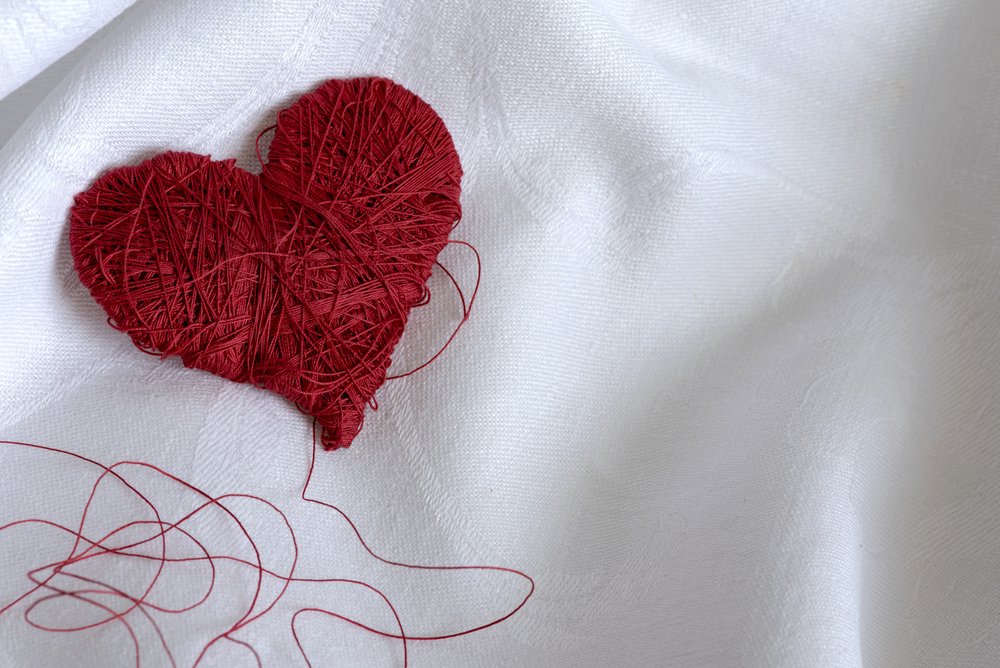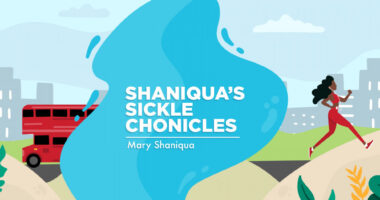What Does It Mean to Be Successful?

Recently, I was playing a question-and-answer game with my partner, and one question that came up was, “What message would you like to tell your younger self?” My answer essentially was about prioritizing and measuring my life by the important things.
In my younger years, I had a life plan, as do most children: finish school, get a job, make loads of money, travel as frequently as possible, buy a big house, a few cars, and plenty of designer goods, get married, and have children. That was the plan. I have achieved some of those things, but not most of them!
Still, I try not to allow that fact to make me feel as though I have been unsuccessful in life.
Don’t get me wrong — would I like to make loads of money? Yes, most certainly. But being so ill in my 20s has shown me that access to money can’t be my only parameter of success. In fact, it shouldn’t really be a parameter at all, in my humble opinion.
Though I am not rich by U.K. standards, I also am not begging for bread. I am fortunate to be employed, earning significantly more than the nation’s average salary. I have a decent house and a car. But when I am unwell, I am quickly reminded that none of these assets add much to my life. None can make me be better.
As I eventually learned this, my life focus had to shift quite dramatically. I should add the caveat that healthcare is free in the U.K., and perhaps if I were required to pay for medical care, money would understandably be of greater importance.
I had been pretty unwell between the ages and 20 and 30, and I suffered many crises, including severe, life-threatening ones. I try not to dwell on it too much, as it can become overwhelming for me. However, during that decade, one of the key lessons was learning what really matters. I concluded that what matters most are my relationships with the people in my life and the memories we create together. Everything else is background noise.
I learned that I cannot find my identity, nor can I measure success, solely based on my career, financial position, or material items. My driving force now is the imprint I leave in the lives of those I encounter, and ensuring I have top-quality, effective relationships.
This has caused some pretty big changes in my personality. For example, I think I have become more generous, and I try to always make time for loved ones. I make work fit around that, rather than fitting loved ones around work.
This perspective also has brought about smaller changes, such as being more keen to take pictures with loved ones, trying to be better about calling and texting people, and other such things.
Living with a chronic condition like sickle cell disease means I am constantly reminded of my own mortality, perhaps more so than the average person. I don’t say that to sound pessimistic or morbid. I try not to take it that way, and sometimes I’m successful, while other times I struggle with it. But this condition has refocused my life’s priorities, and my experiences have propelled me to live a meaningful life.
Ironically, the entire trajectory of my life has been underpinned by the high mortality rate in sickle cell patients. My parents didn’t intend on migrating to the U.K. permanently, rather they came here to study. But when I was diagnosed with sickle cell disease, doctors advised them not to return to their native country due to a lack of medical care there. So, I guess it is to be expected that my diagnoses and experiences would have such an effect on how I view and live life.
As long as I am the best daughter, sister, partner, friend, and perhaps one day mother that I can be, I will believe I am successful. Anything else is merely a bonus, not a measurement parameter.
***
Note: Sickle Cell Anemia News is strictly a news and information website about the disease. It does not provide medical advice, diagnosis, or treatment. This content is not intended to be a substitute for professional medical advice, diagnosis, or treatment. Always seek the advice of your physician or other qualified health provider with any questions you may have regarding a medical condition. Never disregard professional medical advice or delay in seeking it because of something you have read on this website. The opinions expressed in this column are not those of Sickle Cell Anemia News or its parent company, Bionews, and are intended to spark discussion about issues pertaining to sickle cell anemia.







Brenda
This is so beautiful!
Mary Shaniqua
Thank you for your kind words
Damilola
Hi Mary,
So nice to read your piece. I certainly share with your convictions. These realities became dawn on me too after 3 weeks ago that I had a major crisis.
Wishing you the best!
Kinds,
Dammy
Mary Shaniqua
Thank you Dammy for your kind words. I’m pleased to hear this post resonated with you. Wishing you well, stay strong.